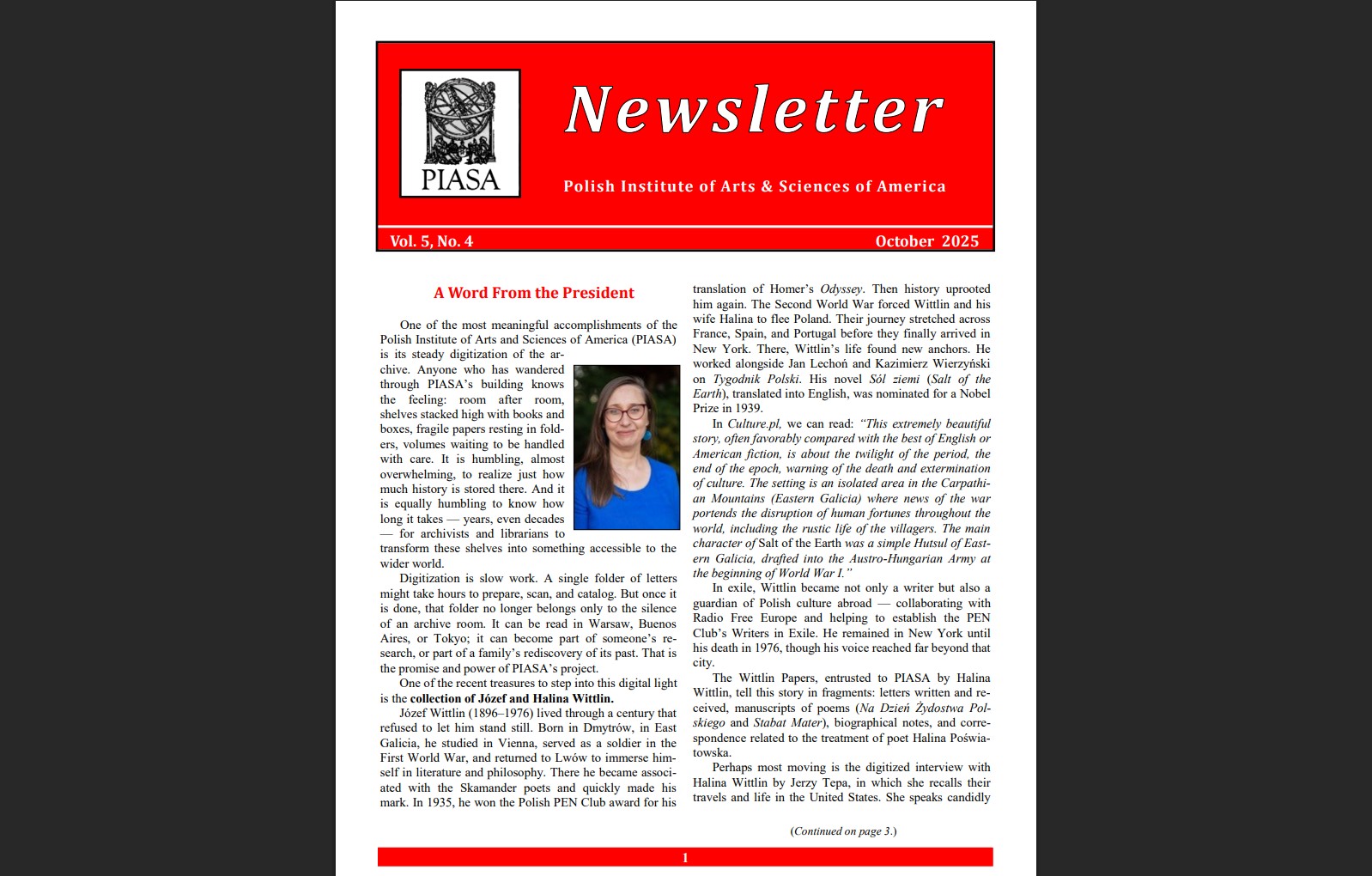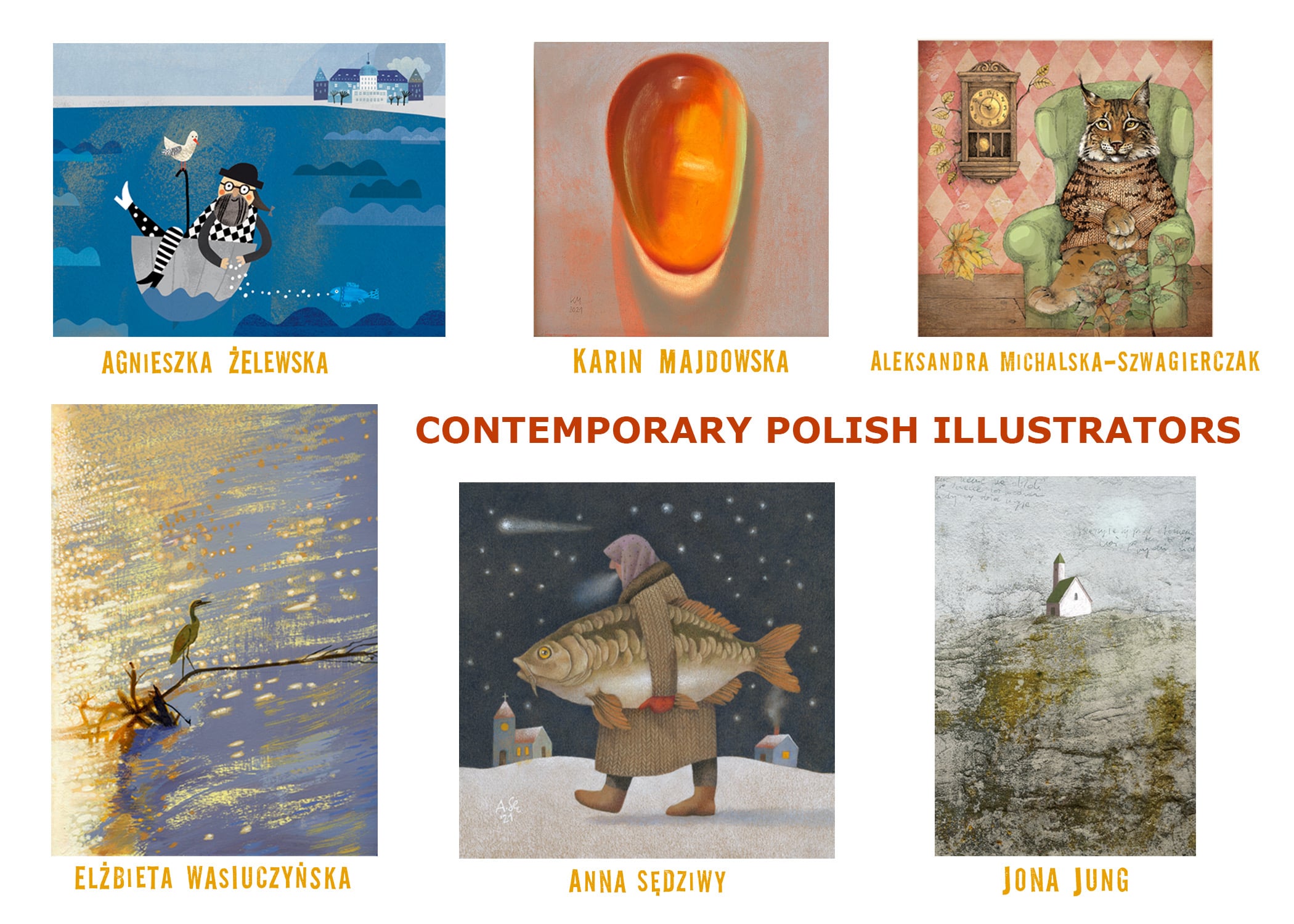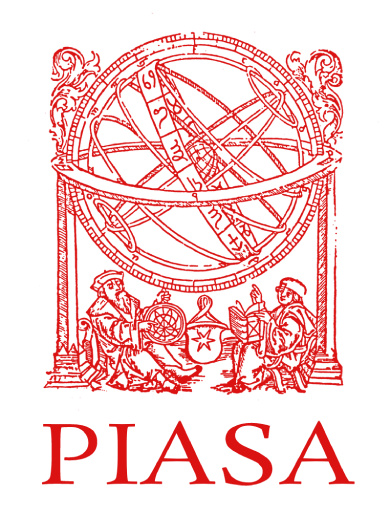PIASA 9th World Congress
Collegium Civitas, June 7 - 9, 2024
Warsaw, Poland
organized under the Honorary Patronage of the Minister of Science

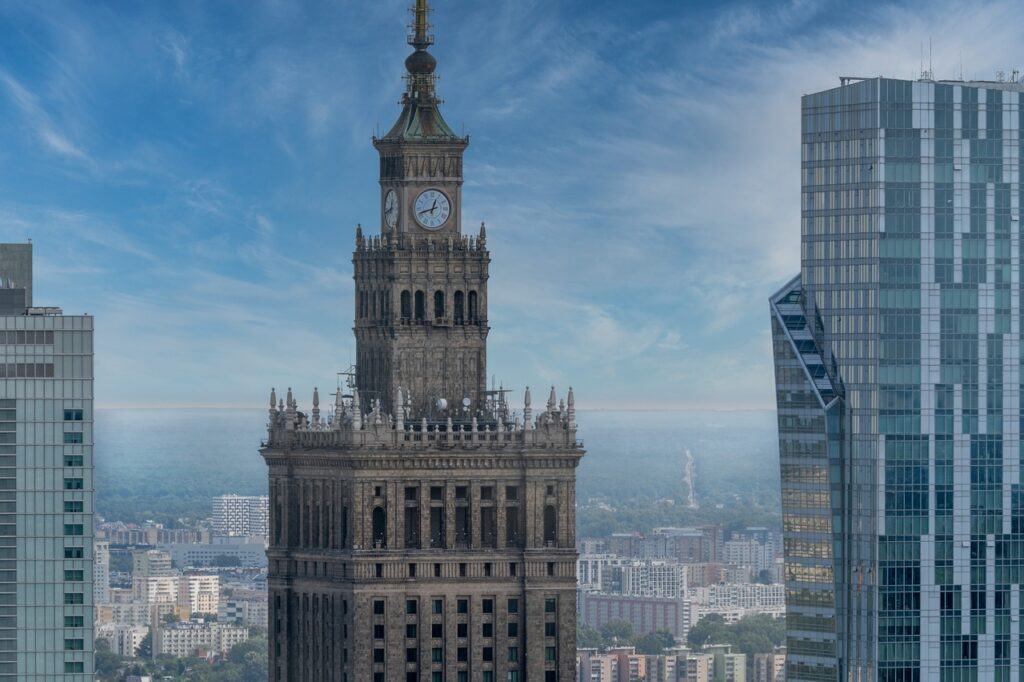
Program
The Polish Institute of Arts & Sciences of America (PIASA) is pleased to invite proposals for its 9 th World Congress, which will be hosted by Collegium Civitas in Warsaw’s Palace of Culture and Science from June 7-9, 2024. Proposals are solicited for complete in-person sessions or individual papers in any of the disciplines in the humanities, social sciences, or business/economics. The general theme of the conference is “Poland in the World,” for which Warsaw, the Polish capital and major European financial, commercial, political, and cultural center is a most appropriate setting. At the same time, Collegium Civitas, a non-public higher education institution with an international student body and strong academic traditions in diplomacy, international relations, sociology, media, and security studies, is well positioned to host the congress at its location in the iconic Palace of Culture in Warsaw’s city center. The Congress also coincides with various anniversaries of international significance, the 35 th anniversary of Poland’s political transformation, the 25 th anniversary of Poland’s accession to NATO, and the 20 th anniversary of Poland’s joining the European Union.
Therefore, we particularly welcome panel and paper proposals which address the continental and global interactions that have affected Poland and the multinational peoples that have inhabited its various territories over time, their cultural impacts, and Poland’s current and past roles in world affairs. In line with the international emphasis of the Congress, sessions including presenters from more than one country are also encouraged. Since we value comparative sessions that place the Polish and East Central European experience in context, papers need not focus specifically on Poland or Polish themes. Finally, papers do not necessarily have to address the main conference theme and are welcome for consideration in separate and cohesive panels.
Each session is scheduled for 90 minutes to accommodate three papers or about 20 minutes per paper, with suitable time left for discussion. As the conference language is English, all panel and paper submissions are expected to be in that language. All conference rooms will be equipped with AV for PowerPoint presentations. Presenters are invited to submit their final conference papers to be considered for possible publication in The Polish Review after the conference.
All participants are encouraged to pay the conference pre-registration fee of $100, discounted to $50 for students, by May 10, 2024, as the conference fees will increase after that date.
The Friday morning plenary session will be welcomed by the mayor of Warsaw, Rafał Trzaskowski, and the plenary keynote address will be delivered by Deputy Foreign Minister Władysław Bartoszewski.
The Saturday evening awards banquet will be held at 6:30 PM (admission is $75) at the recently opened Museum of Polish History at the Warsaw Citadel. Dr. Janusz Onyszkiewicz, Solidarity spokesperson in the 1980s, Minister of Defense in two Polish cabinets, and former Vice President of the European Parliament, will deliver the banquet keynote address.
Thursday, June 6
2:00-6:00 Praga Tour
Price: 40 USD per participant
Registration for tour closes on May 15 and any additional participants afterwards will be added subject to seat availability
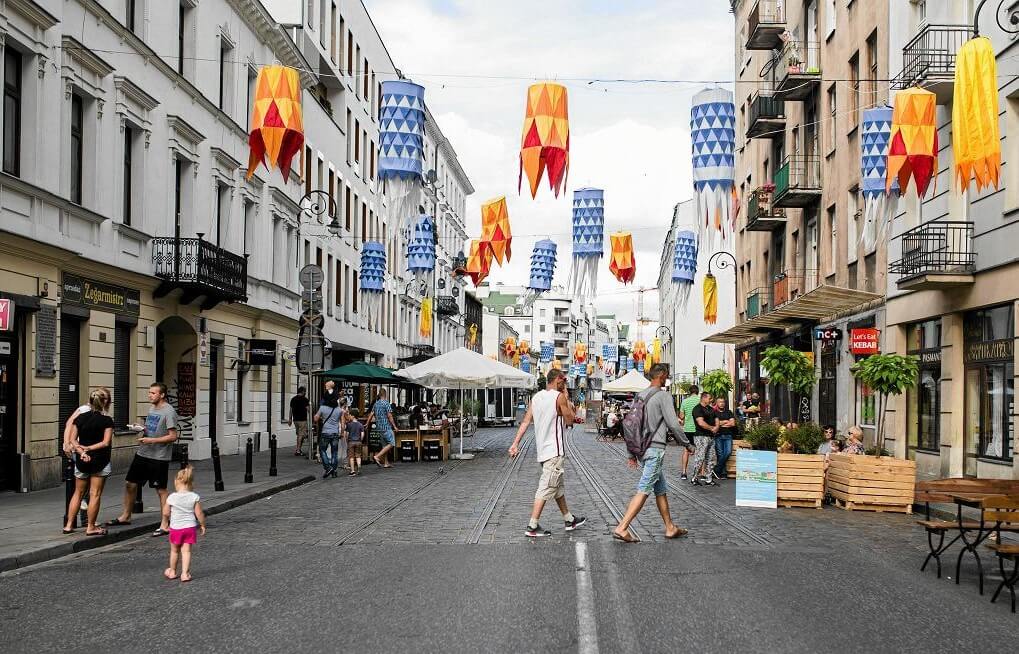
Praga is a historic Warsaw district located on the right bank of the Vistula River. During the tour, we will see some of the finest examples of pre-war architecture, including traces of its Jewish heritage, with one example being the Bergson Educational Establishment of the Warsaw Jewish Community (built in 1911-1914, one of the best-preserved Jewish buildings in Warsaw). We will stop at Koneser - the historic vodka factory, today one of Warsaw's entertainment centers, located in a unique urban setting. We will see small, picturesque chapels and the Basilica at Kawęczyńska Street. On the way, we will also see Warsaw's longest block of flats. We will walk through the old Różycki's Baazar and venture into the streets where the famous movie "The Pianist" was shot.
Praga is known for its shabby reputation, but do not worry! Its bad reputation largely belongs to the past. The district is changing and known for its bohemian vibe, world-class street art (which we will look at during our Praga tour), charming cafes and lively bars, and local artists who live and work in Praga. The British newspaper The Independent even ranked Praga as one of Europe's ten “coolest and most promising” neighborhoods.
Our experienced guide will show you the most beautiful and interesting places full of history. Visiting Praga is like traveling in time! The tour is 4 hours long, with pickup at 2 PM at the Palace of Culture and Science.
Other News
2025 PIASA Award Recipients
•
February 11, 2026
Newsletter Vol. 6, No. 1 January 2026
•
December 30, 2025
CONTEMPORARY POLISH ILUSTATORS – Art Exhibition
•
November 12, 2025
Newsletter Vol. 5, No. 4 October 2025
•
September 26, 2025
Get Connected

Co-financed by the Ministry of Culture and National Heritage of the Republic of Poland
PIASA 9th World Congress
Collegium Civitas, June 7 - 9, 2024
Warsaw, Poland
organized under the Honorary Patronage of the Minister of Science


Program
PIASA 9th World Congress
Collegium Civitas, June 7 - 9, 2024
Warsaw, Poland
organized under the Honorary Patronage of the Minister of Science



